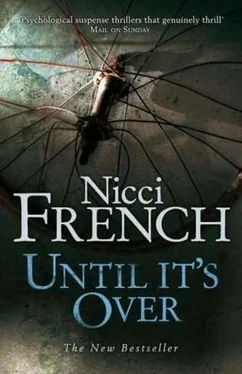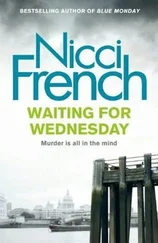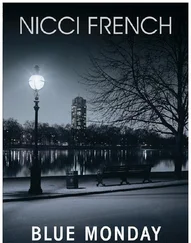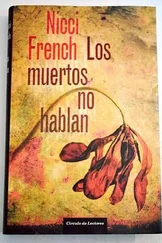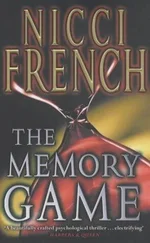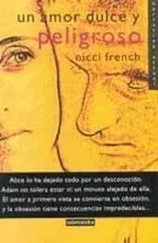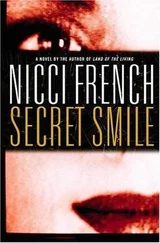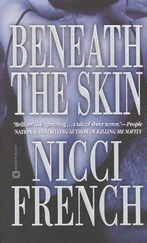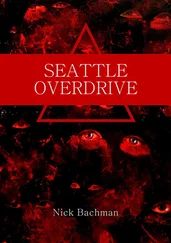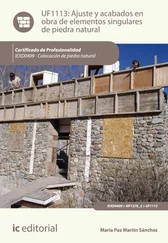‘It’s up to you,’ said Kamsky.
‘My mother’s dead,’ I said. ‘I loved her. I should never have left her alone. I’ll answer anything you want. I’ll do anything I can to help.’
Kamsky switched the tape on and announced the date, the time and the place, the names of the officers present, my full name and that I had been told my rights and had agreed to be interviewed without a lawyer present. They began to ask me questions, but really over the next hour or so I learned far more than they did. I was deliberately vague and fumbling in my answers. After all, I was a son who had just been told his mother was dead and, despite his distress, was trying to do his best to help. If I had been precise in every detail about my movements and motives and what I had been doing in the weeks before I came to London and why I hadn’t returned or even been in touch, that’s what would have been suspicious.
It became clear that, after the heat of the last few weeks, the body had been so decayed that it had been difficult enough to make an identification and impossible to find out anything else significant. I could imagine the sequence. First the flies, then the maggots, a boiling carpet of maggots, scouring everything away. It was obvious that they didn’t have anything but they’d brought me in to look at me, to jolt a reaction out of me. I didn’t need to be clever. The more confused and helpless the better.
‘I feel so terrible,’ I said at one point. ‘I thought her friends would look after her. I don’t know what could have happened.’
‘Did she have many friends?’ asked Pope.
‘A few,’ I said. ‘Less since she’d got ill.’
‘How ill was she?’
‘I don’t know what was wrong with her but I think she was sometimes in pain,’ I said, glassy-eyed. ‘I know she tried to keep it from me. But she was so brave about it. Maybe she tried to do too much.’
I wanted to keep on playing stupid. I knew it was the right thing to do. But I couldn’t resist it. I had to know. I waited until the questions seemed to come to a halt.
‘I don’t understand,’ I said. ‘Why are you both here?’
‘I need to consider all possibilities,’ said Kamsky.
‘My mother was found dead in her bed. In Sheffield. What do you mean, possibilities?’
‘I hate this case,’ Kamsky said.
It was my own fault. I’d gone through that door. I decided it was time to get angry. ‘What do you mean, this fucking case?’ I said. ‘What case? You’ve just told me my mum’s dead. What are you talking about? You’ve arrested fucking Miles. What are you after? Ask me anything you want. I don’t care. But don’t fuck me around.’
Too many fucks. That wasn’t how Davy talked. It sounded like play-acting. I gave a hoarse sob to make up for it.
‘Calm down,’ said Pope, in a more soothing tone. ‘Tell me about your mother. Were you close to her?’
They tried to probe my psychology but it was going nowhere. I was able to bore them into submission. I sniffled a bit, and stammered. I went round in aimless circles. I did some more dry sobbing. I did some more hiding my head in my hands. Finally there was a pause and Kamsky looked at Pope, nodded, then leaned over and switched off the tape-recorder. They both seemed quietly irritated at the waste of time.
‘Please accept my condolences,’ said Pope.
I didn’t reply. I was remembering the months of irritation with my mother that had built up like a noise inside my head. All it had taken was a pillow over her face and the noise had gone away. It had been so easy, as if I had just left her sleeping. Pope took the notebook and replaced it in his jacket pocket.
‘You’ll be contacted about the inquest,’ he said. ‘You’ll be wanting to arrange the funeral. And there’s the house to be dealt with.’
The house. It had been there all this time, waiting for me.
‘Did you hear me, Mr Gifford?’
‘It’s a bit sudden,’ I said. ‘I’m trying to take it in. Being an orphan. And all that.’
I looked at them in turn. It seemed to go down all right.
I had a house. They had no evidence against me and now I owned a house. Not a large one, not a lovely one, not one in a desirable area, not one I would ever want to live in. But mine. How much would it fetch? It had three bedrooms and a garden and I didn’t believe in ghosts. The nasty smell could be scrubbed away. A hundred grand? I hardly needed the money in Astrid’s jacket any more, but it wasn’t to be sniffed at – it would still come in useful. Say, a hundred and twenty thousand pounds. Not bad, not bad at all. I could never have got that much from Ingrid de Soto ’s house. Funny how things turn out.
Or how things could turn out, I reminded myself. There were still things to do. Things in my way. There was the paperweight. Astrid just needed to hear about it, and to remember.
I had been scared and tired even before Kamsky had tapped me on the shoulder, but now all of that had gone. I was on top form again. I could feel my thoughts clearing in my head. I could feel my heart beating steadily again and my muzzy fatigue lifting, like the fog lifts in the morning.
I looked at my watch. It was well past midnight. It was too late to find Astrid now. She’d be asleep somewhere, tucked up in bed, those big eyes closed and those golden limbs relaxed under the sheets, not knowing what tomorrow would bring. It was too late, as well, for me to find somewhere to stay now. I briefly considered going round to Melanie’s. She’d welcome me in, no matter how late it was. Indeed, she was probably lying awake, waiting for me to call or to come. But I couldn’t go to Melanie’s, not tonight, not ever again. She was history. I could hardly bring myself to remember her face, her dewy eyes, her frightened smile, her clutching hand.
I found a nasty little café with grimy windows, which was still open. There were only two people in it – an old man with long grey hair tied back in a greasy ponytail who was sitting at a table, stirring sugar into a cup of very milky coffee, and a young woman at the counter. She had spiky blonde hair and a sulky mouth.
‘Are you still serving food?’ I asked her.
‘The chef’s gone home. I could give you a sandwich, if you want.’
‘OK.’
‘Bacon?’
‘OK.’
‘But we close in a few minutes.’
‘Right.’
The bread was stale. The bacon was tough, fatty and cold and bits stuck in my teeth. The woman turned chairs upside-down on tables and swept crumbs up round my feet. The man with greasy hair shuffled out. When I had my money, I would go to smart restaurants with clean windows and polished tables where waiters in dark suits would fill my wine glass and bend respectfully over me, calling me ‘sir’. I chewed a few small mouthfuls very slowly, not hungry in the slightest but marking time, then ordered a coffee, though I didn’t need it to keep me awake. I was already wide awake, fully charged. The next twenty-four hours lay in front of me like a road, clear and straight. I felt the spanner in my pocket. I checked my mobile to make sure it had enough battery. There were several missed calls from Melanie, but I ignored them.
At a little after one, the waitress slouched over to the door, turned the ‘open’ sign to ‘closed’ and asked me to leave.
I walked. Past queues outside nightclubs, past a group of drunken men in suits, past down-and-outs in doorways strewn with cigarette butts. Down to the river. I sat on a bench and looked at my watch. It was three o’clock. In two hours or so it would be light. I closed my eyes and went through everything in my mind. When I opened them, it was half past five and there was light on the horizon. I had no notion that any time had gone by and no memories of dreaming, but I supposed I must have slept. I stood up and stretched. I made sure all the buttons on my shirt were done up, took a comb out of my breast pocket and neatened my hair. Then I walked back the way I’d come. At twenty past seven, I stopped in a café and ordered a cup of tea, but I could only manage a few sips. My insides were burning. I bought freshmint chewing-gum from a newsagent: that would have to do this morning in the place of cleaning my teeth. I bought a bottle of water as well, and rinsed my mouth. I felt like a runner waiting to take his place on the starting blocks.
Читать дальше
